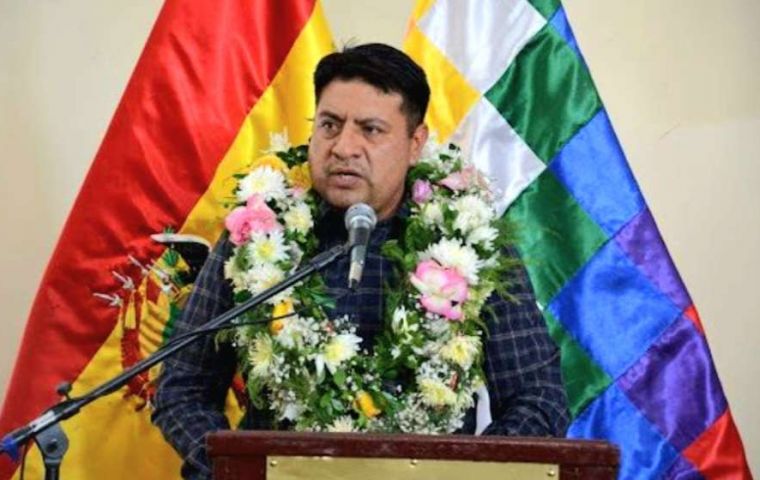MercoPress. South Atlantic News Agency
Bolivia to focus on biodiesel production
 The initiative must be handled responsibly regarding its possible effects on people and the environment, Flores pointed out
The initiative must be handled responsibly regarding its possible effects on people and the environment, Flores pointed out Bolivia's Minister of Rural Development and Lands, Yamil Flores, underlined Tuesday that his country would use biotechnology to produce biodiesel. He also noted that this technology, although promising, must be handled responsibly, considering its impact on people's health as well as on the environment.
“We must not only evaluate the data, we must look at the consequences on health, we must look at the issue of procedures especially for human and animal consumption. What we are promoting, in the first instance, is the issue of biotechnology, but for the production of hydrocarbons, in this case biodiesel. We have to make this clear to the population,” Flores stressed after Saturday's meeting between President Luis Arce Catacora and the National Agricultural Confederation (Confeagro) and the Eastern Agricultural Chamber (CAO).
During the gathering, a road map was drawn up to advance studies on biotechnology, while guaranteeing the legal security of land and the fuel supply to boost exports. It was also agreed to carry out a joint work regarding the regulatory and technical aspects of biotechnology. A report is due in 10 days. ”We are going to develop this issue of incorporating products with genetic improvement with them (the agricultural and agroindustrial sectors) in these 10 days that we have given ourselves,” Flores also explained. In his view, this line of work will yield good results for the agricultural and energy sectors.
The Bolivian Platform against Climate Change has expressed its firm rejection to the approval and use of transgenic events, such as HB4, in soybean and wheat crops. The organization finds these modified organisms to pose a serious threat to the country's food sovereignty because they generate dependence on seeds and technologies controlled by multinationals, affecting local farmers and producers, in addition to the health risks for consumers and producers alike. The Platform has underlined the importance of agroecology as an alternative for the production of healthy and sustainable food.
On Aug. 12, Flores became the fifth Minister of Rural Development and Lands four years into Arce's presidency. Two of Flores' predecessors had left amid allegations of irregularities. Wilson Caceres was sworn in on Nov. 9, 2020 and left after less than a month after being accused of nepotism. Edwin Characayo took office on Dec. 1, 2020, and left in the midst of a corruption scandal in April 2021 when he was caught red-handed receiving bribes to favor private individuals in the department of Santa Cruz, for which he was prosecuted and sent to prison. The Ministry of Rural Development and Lands comprises the Vice-Ministry of Rural and Agricultural Development, the Vice-Ministry of Coca and Integral Development, and the Vice-Ministry of Lands.




Top Comments
Disclaimer & comment rulesCommenting for this story is now closed.
If you have a Facebook account, become a fan and comment on our Facebook Page!